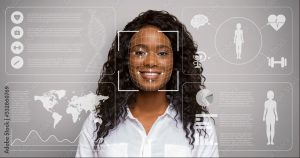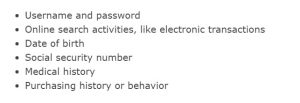This week’s EDTC300 class talked about digital identity.

What is digital identity? It is basically your identity online. Our digital identity is based on our interactions online and how we engage online. This video from U of G Library explains digital literacy well!
Some people have a strong digital identity online, while others have different identities. This article from engadget explains the concept of different digital identities. Likewise, I have been around the internet since birth basically. Throughout the years I have managed to create different digital identities. I use different emails for different purposes. My main email is used professionally; it is used when signing documents, registering for whatever, and anything normal. The other email that I have is the one I use for gaming. I also have a different email for Facebook and discord. I have these many emails in different apps since I act differently in each. For example, my Facebook is where I post opinions and personal life stuff. My twitter is where I post professional stuff since I use my main email there.
Your digital identity is represented in many categories online. Techopedia listed some below:
 As we all know by now, a lot of people online can basically research anyone online and find out about them. I am guilty of this!!
As we all know by now, a lot of people online can basically research anyone online and find out about them. I am guilty of this!!
Whenever I am registering for classes, I make sure to research the professor’s name. Sometimes, I even look at their reviews and see different students’ opinion and/or rating on the professor. I guess I could say that I am cybersleuthing my professors!!
Just a heads up!!
I think what I can take away from cybersleuthing professors, especially on rating sites such as Rate My Professors, is that we should not formulate our views on them based on these ratings! For example, some professor profiles only have two student ratings. We cannot base our opinion on the professor from two ratings!! just my two cents!
Anyways,
This week, however, we are tasked to cybersleuth a classmate. I am going to keep their name private because I respect their privacy, and my description of my findings somewhat vague.
Looking at their twitter profile, they seem like they are on their 1st year university. Reading more about them, I found out that they already have a master’s degree in science, and they are married! Whenever I google their name, a LinkedIn profile appears, but it is not my classmate since this person is a business manager. That is basically what I could find since there are many people who uses the same name as my classmate!!
With all these cybersleuthing in mind, let us bring digital identity onto the table. We have seen many cases of people’s past being revealed to shame a them from what they have done years ago, or when they were young. This youtube video from Jon Ronson explained it greatly how we share online can potentially ruin our lives:
In the video, Jon Ronson stated the case of a woman named Justine who tweeted some distasteful jokes for which enraged twitter users.
“Twitter took control of her life and dismantled it piece by piece”
says by Jon Ronson. It is just devastating that despite the terrible joke she has made, I think it is not as huge of a crime as the people of twitter made it out to be. It is quite funny that people started doing “anti-racism” and donating to charity after this scenario happened. It reminds me of a lyric from the song “Louder Than Words” by Jonathan Larson:
“Why does it take catastrophe to start a revolution?”
It is quite ironic, don’t you think?
It is great lesson for everyone, not only for Justine, that we should be aware of what we post online or any kind of activity.

This week’s lecture reminds me of a campaign back in Philippines. It is called “Think Before You Click” Campaign. It was a campaign to teach Filipino citizens to be cautious of what they see or share online.
I think this is a great reminder to everyone. Let us have a healthy digital footprint and a reputable digital identity!!
Great post Jozelle! I like that you mentioned rate my professor, as I also use it. It’s definitely interesting to see how quickly people will refuse to take a class or bash a professor online based on one rating or experience. I think with the multifaceted digital identities we all have, it’s very hard for people to connect the different experiences they have with people in different online/irl spaces. Maybe that’s what makes it so easy for people to shame others and bully them online.